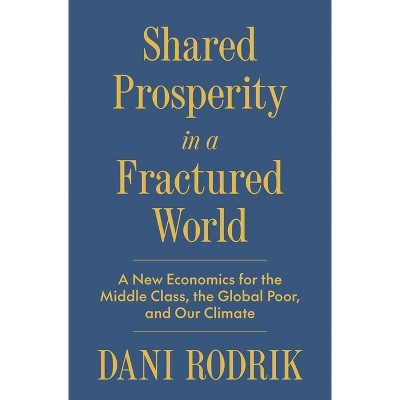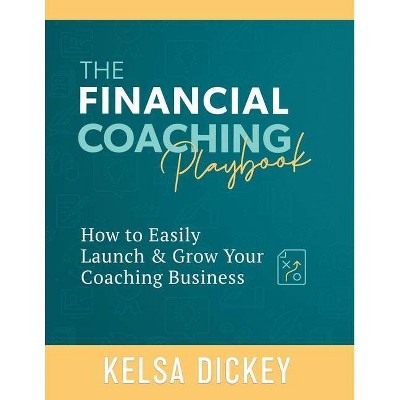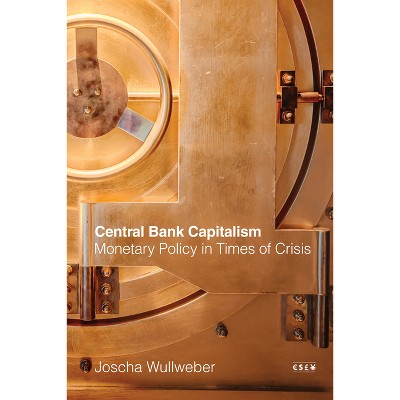Sponsored

The Financial Diaries - by Jonathan Morduch & Rachel Schneider (Paperback)
In Stock
Sponsored
About this item
Highlights
- The ideal of the American Dream seems increasingly out of reach, even for many families who are trying to do everything right.
- About the Author: Jonathan Morduch is professor of public policy and economics at the New York University Wagner Graduate School of Public Service.
- 252 Pages
- Social Science, Social Classes & Economic Disparity
Description
Book Synopsis
The ideal of the American Dream seems increasingly out of reach, even for many families who are trying to do everything right. To find out why, Jonathan Morduch and Rachel Schneider followed 235 low- and middle-income families as they navigated a year of ups and downs. Through the groundbreaking US Financial Diaries project, we meet real people, from a casino dealer to a street vendor to a tax preparer, who open up their lives and reveal a world of financial uncertainty. For these families, even limited financial success requires imaginative--and often costly--coping strategies: forming saving clubs, borrowing from relatives, strategizing about skipping bills, and devising ways to keep money just out of easy reach. In The Financial Diaries, Morduch and Schneider challenge popular assumptions about how Americans earn, spend, borrow, and save. This book uncovers deeper causes of distress and inequality, starkly illustrating how changes in America have placed too much risk on the wrong shoulders. The authors describe new tools and policies--from fin tech apps that help people manage money to laws that guarantee predictable hours--that will improve stability for those who need it most.From the Back Cover
"The Financial Diaries succeeds in that rarest of goals: making you think and care at the same time. This is an invaluable look at the profound economic uncertainties of our era."--Jacob S. Hacker, author of The Great Risk Shift
"The Financial Diaries provides a voice for the millions of Americans struggling to take control of their financial lives. Morduch and Schneider's vivid assessment of the causes and consequences of financial instability for the hard-working families in neighborhoods across the nation challenges all of us to do our part to address this widespread problem."--Dan Schulman, President and CEO, PayPal
"Morduch and Schneider significantly advance our understanding of financial insecurity and intermittent poverty by showing how these stem from monthly and annual volatility in both income and spending--and not just low incomes. Employers, financial institutions, and policymakers should read this book and help American families better save, borrow, spend, and plan for their financial future."--Sarah Rosen Wartell, President, Urban Institute
"This powerful book should change the way we think about economic opportunity in America. Two of the nation's leading experts on consumer finance show how widespread and destructive economic instability has become, reaching from factory and fast-food workers into the ranks of the middle class. Rising costs and unsteady income not only strain families' efforts to meet basic needs--and generate a heavy reliance on self-defeating coping strategies--but challenge their faith in the American Dream. This book is an urgent wake-up call, and a roadmap for equally urgent reform."--Darren Walker, President, Ford Foundation
"The Financial Diaries is an invaluable framework to understand why working-class families feel uneasy with their financial situations. It makes an important case for the distinction between illiquidity and insolvency, and why policy solutions for each may not be the same."--Elisabeth Jacobs, Washington Center for Equitable Growth
Review Quotes
"Winner of the 2018 Silver Medal in Economics, Axiom Business Book Awards"
"2018 Silver Medal Winner in Finance/Investment/Economics, Independent Publisher Book Awards"
About the Author
Jonathan Morduch is professor of public policy and economics at the New York University Wagner Graduate School of Public Service. He is the coauthor of Portfolios of the Poor (Princeton), among other books. Rachel Schneider is the Omidyar Network Entrepreneur-in-Residence at the Aspen Institute and a senior advisor at the Center for Financial Services Innovation.Shipping details
Return details
Trending Non-Fiction




Discover more options













